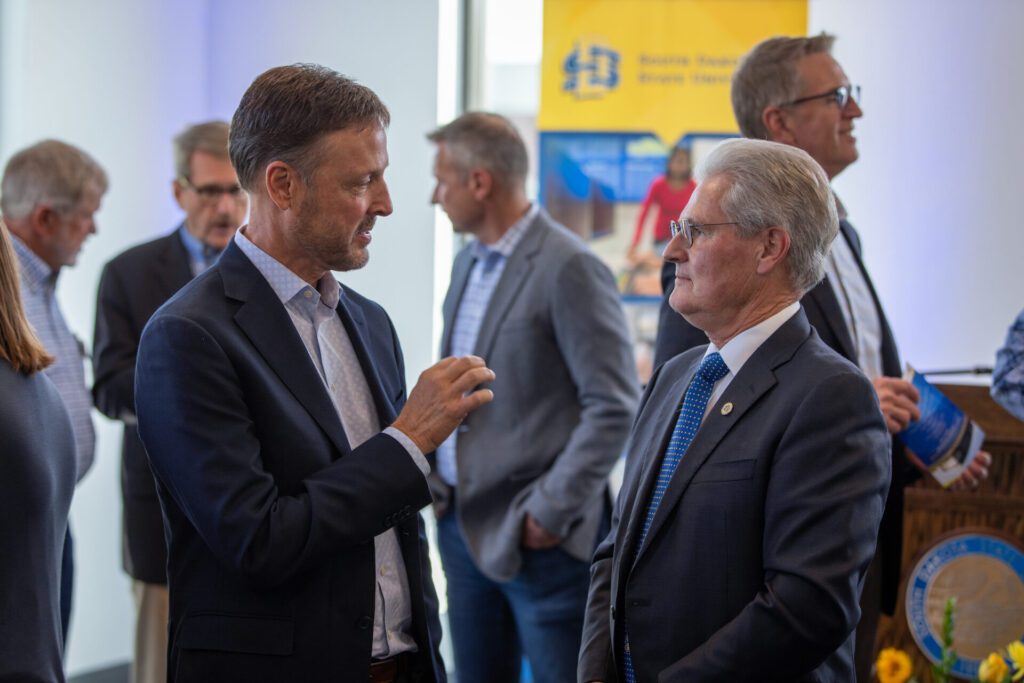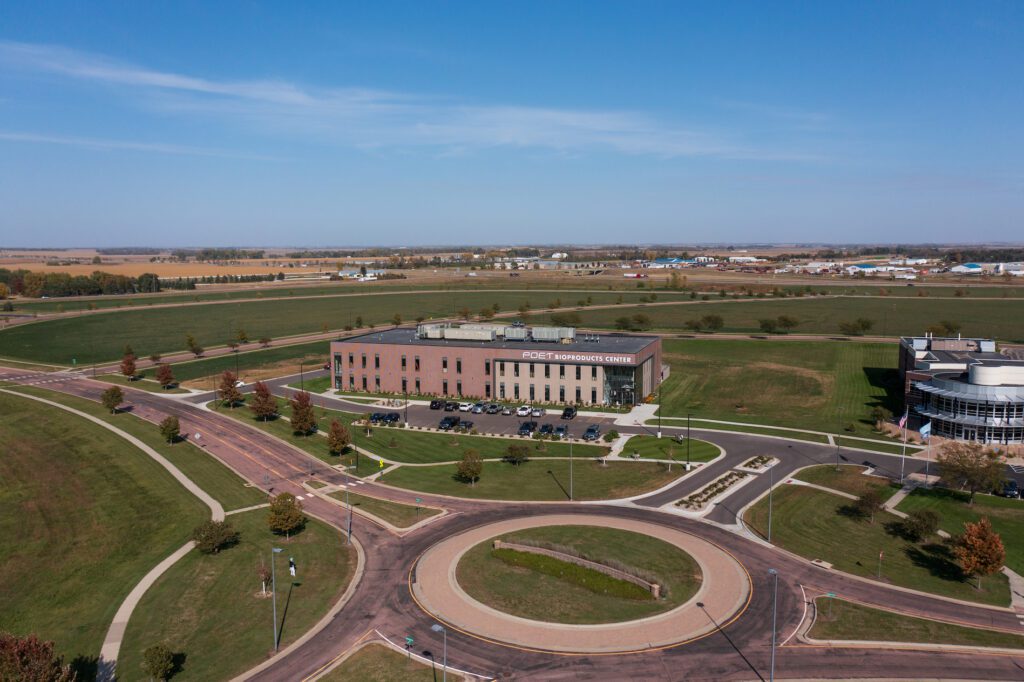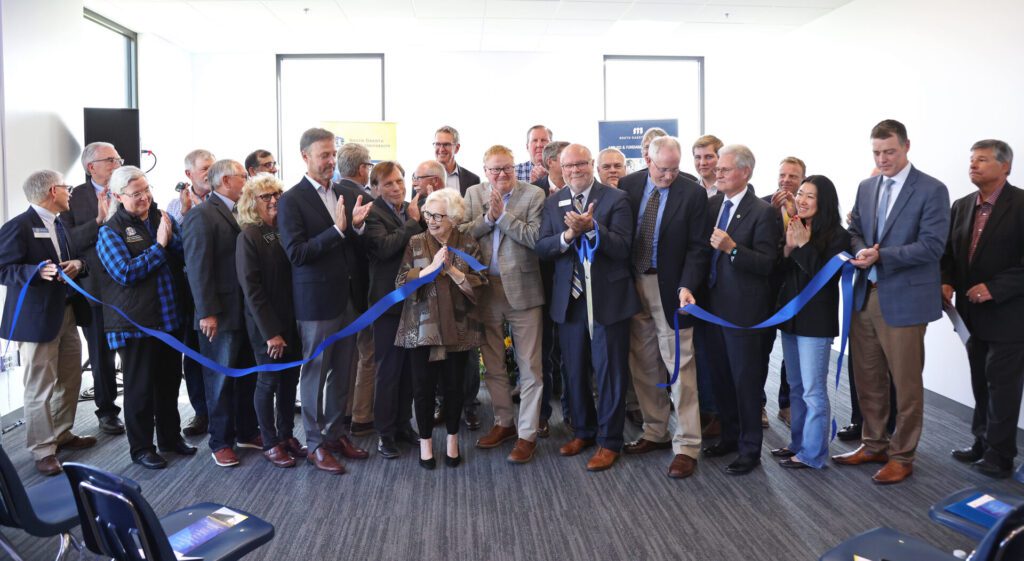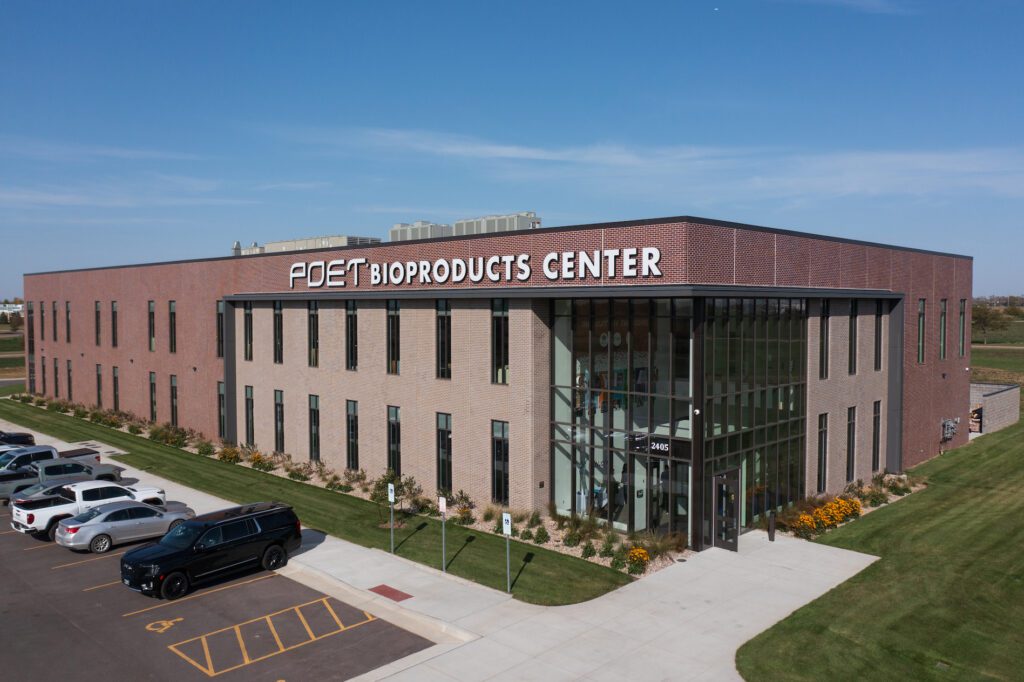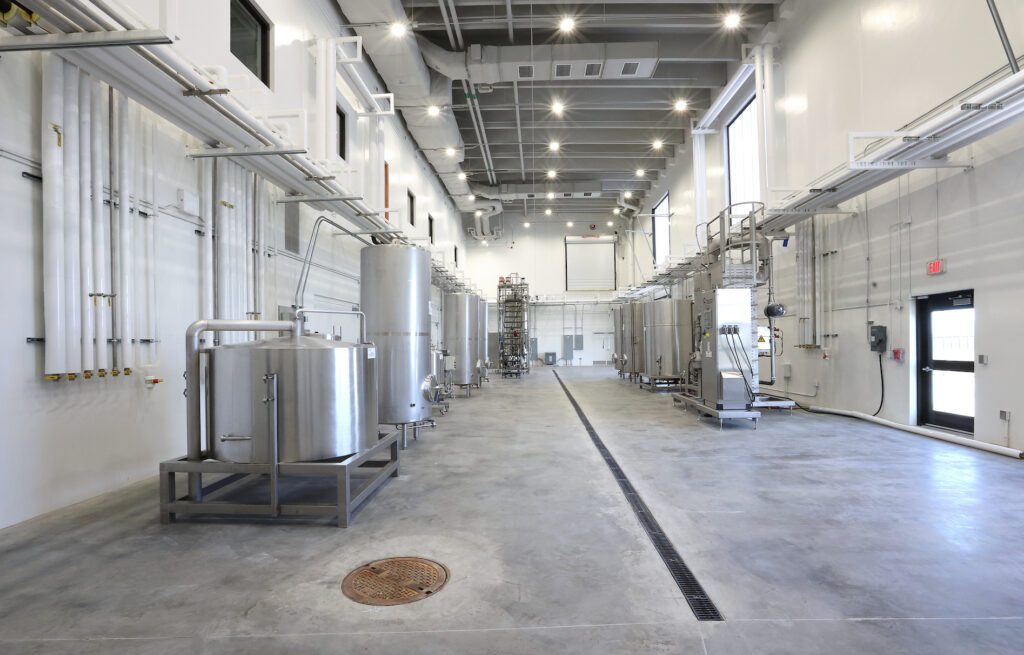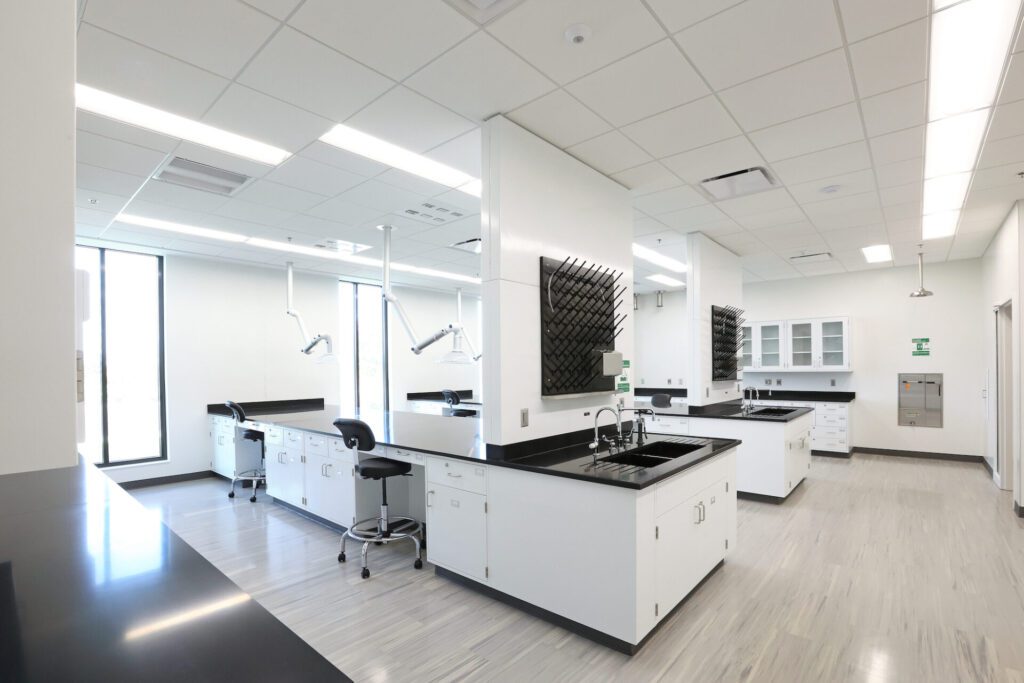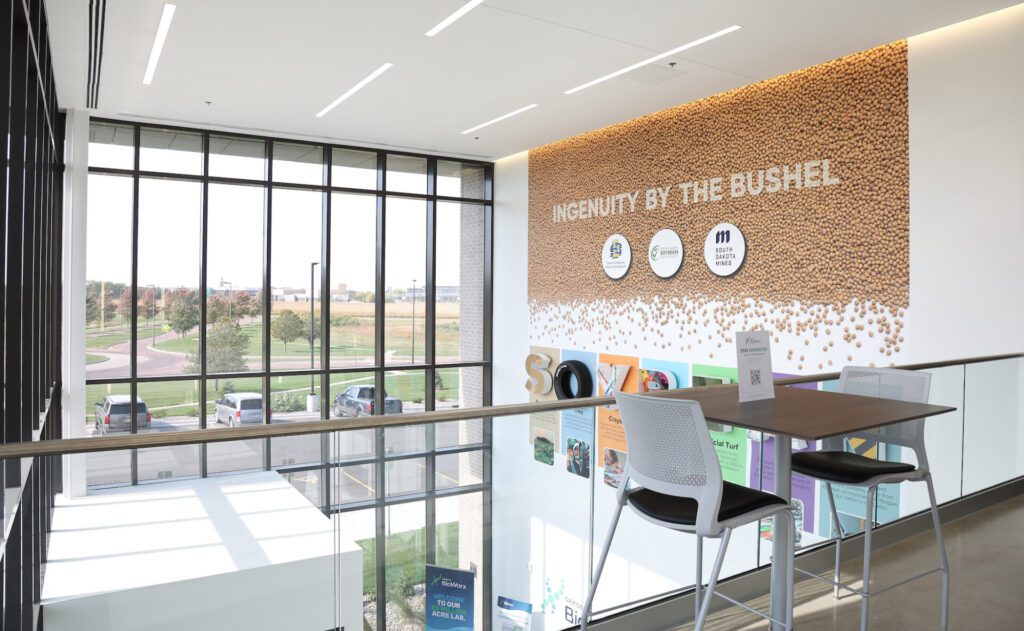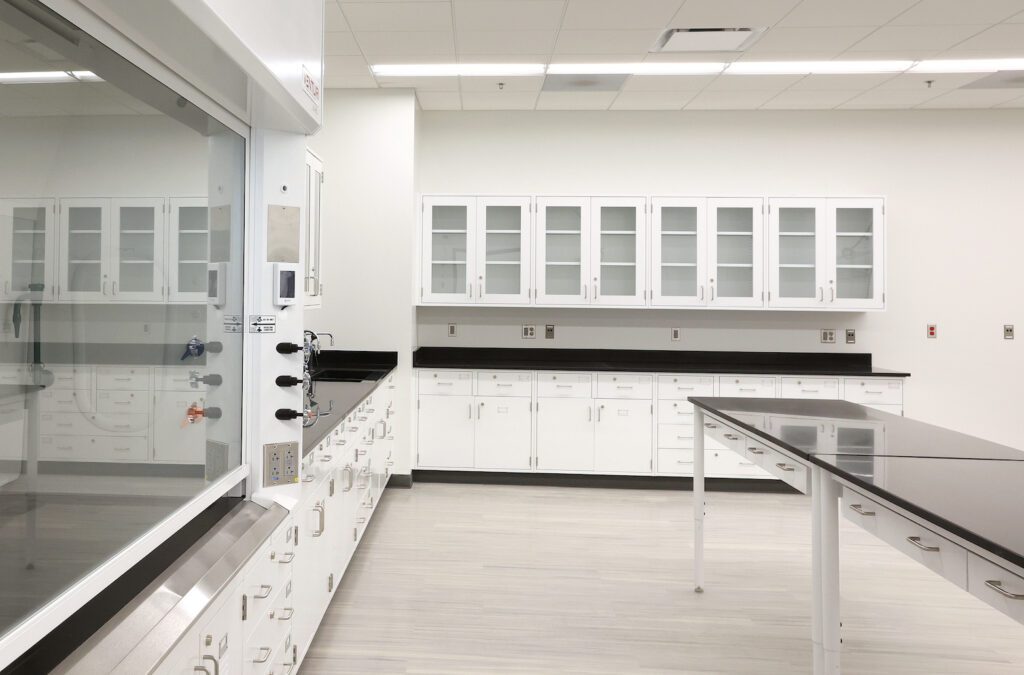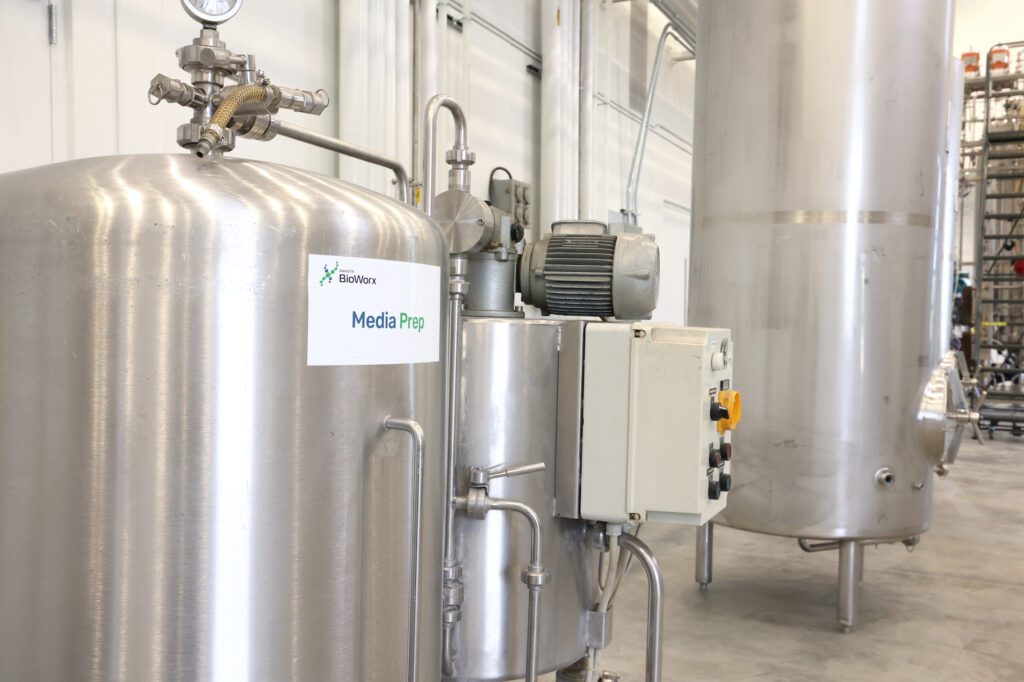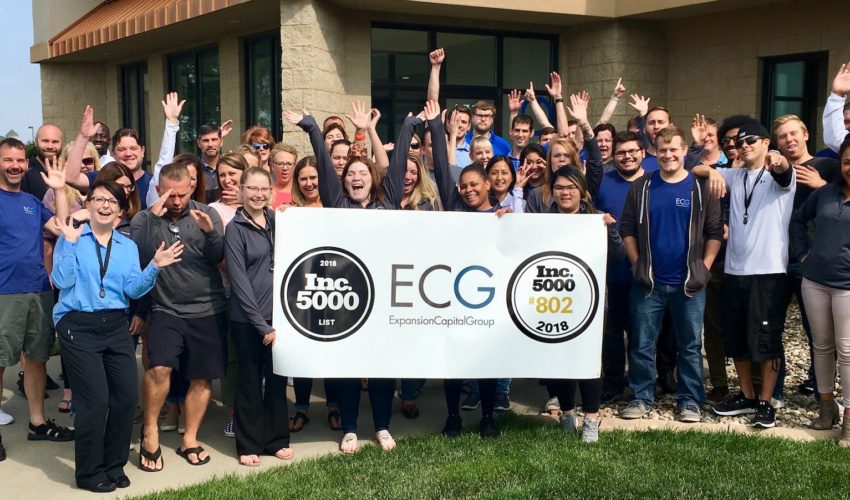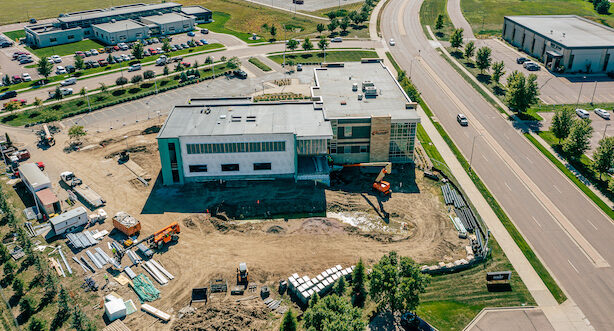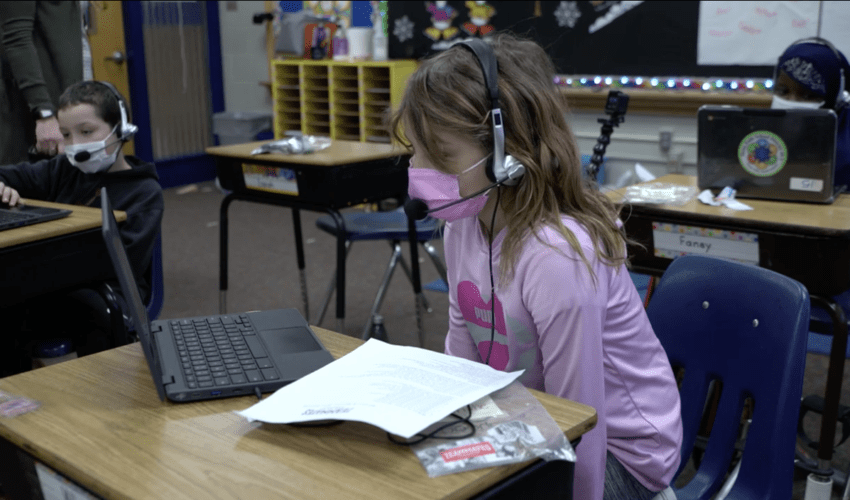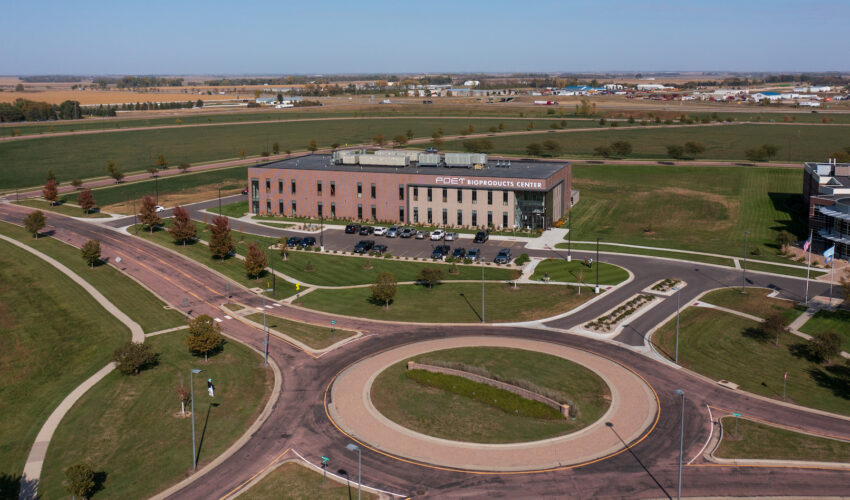First-of-its-kind bioproducts center brings public, private partners together to scale up, commercialize
Oct. 12, 2023
This paid piece is sponsored by POET.
It’s a big statement, but POET’s leaders believe they can back it up:
“The future is the bio-ag economy,” president and chief operating officer Jeff Lautt said.
“The Midwest is going to become the Silicon Valley of the future.”
But positioning a university, a community or a state to capture that opportunity requires investment, innovative thinking and collaboration.
POET’s vast network of regional ethanol plants and broader business activities exposes the Sioux Falls-based companies to innovation occurring in the region and beyond. It led CEO Jeff Broin and Lautt to begin conversations with South Dakota State University about what South Dakota needed to compete and win in the bio-ag economy of the future.
All photos by Emily Spartz Weerheim unless otherwise noted
“We cast a vision that we didn’t want South Dakota missing out as other states and universities were developing programs and partnerships to draw talent and meeting industry needs,” Lautt said.
The thinking aligned naturally with a gap SDSU already had identified, said Daniel Scholl, SDSU vice president for research and economic development.
“We had seen examples of public-private partnerships in other states around what I’ll call core enabling facilities – places where there’s a combined investment into research to create a critical link in moving new technology into the marketplace,” Scholl said.
A few years after that initial conversation, this shared philosophy now takes the form of the POET Bioproducts Center, which this week held a ribbon-cutting at the Research Park at SDSU in Brookings.
Photo by Tim Stanek
While its home is in Brookings, the 45,000-square-foot institute represents a collaborative effort between SDSU and South Dakota School of Mines, as well as the public and private sectors.
It’s expected to become a key link in transitioning bench-scale bioprocessing and bioproducts research to the marketplace, providing structure and simplicity for private enterprise to collaborate with university scientists to develop products.
The facility is made possible by a $5 million gift from POET, as well as $20 million in legislative funding, $2 million from South Dakota Corn and additional annual funding from the South Dakota Soybean Research and Promotion Council and state government.
Photo by Tim Stanek
“At POET, we’re proud to have been at the forefront of ag and biotechnology innovation for 35 years,” Broin said. “We are committed to investing in the next generation of leaders who will pave the way to the ag-based bioeconomy of the future. We have only begun to scratch the surface of what agriculture can do, and this venture will play a vital role in the ability of today’s bright young minds to continue our legacy of ingenuity.”
Within the building, visitors will find six bioprocessing labs, five labs, eight private offices, hoteling office space, collaboration and conference space and room to grow with a half-dozen more labs and additional offices.
“The building is tremendous. I’m really, really happy with how it turned out. And everyone really believes in what’s going on here,” Scholl said. “There is no other place in South Dakota like this. These are scale-up facilities where users — partners or companies — can come to the facility to use it, develop their scale-up, and then they leave and someone else comes in to use it.”
Based on recommendations from an international bioscience consulting team, the POET Bioproducts Center team chose two specialization areas: specialty animal feeds, specifically prebiotics and probiotics that have the potential to reduce the need for antibiotics, and biomaterials, including bioplastics that are degradable.
“As the global bioeconomy grows, it’s forecast there’s a huge, huge gap in pilot scale-up facility capacity,” Scholl said. “That’s a bottleneck globally to develop the bioproducts people are looking for – green product – and this begins to fill that gap locally.”
For POET, which will be among the companies using the building to scale up products, “I suspect we will have a ramp-up of the collaborative activities between our engineers and scientists and team members and the students, both undergraduate and graduate, and the professors as we look to solve problems,” Lautt said. “That partnership can be really powerful.”
For the SDSU students who will work in the building, it’s invaluable experience, Scholl said.
“They can sell that to employers that make bioproducts through bioprocesses using microorganisms to actually do the manufacturing work,” Scholl said. “That business is growing. So there’s a lot of upside potential for specialty manufacturing capabilities to grow in South Dakota, and this is an opportunity to prepare our students to fit right into that.”
Bioprocessing also figures into dairy product manufacturing, he added.
“Cheese manufacturing is a bioprocess,” Scholl said. “We already train students for that industry on campus using a pilot dairy manufacturing plant, and 100 percent of students are hired months before they graduate because there’s such a demand for people with that firsthand knowledge, and it’s the same with other bioproduct production lines.”
The nonprofit Dakota BioWorx will be the operating entity for the building and work with businesses interested in using it.
“We fully expect that this building will be humming with material continually coming in and going out here,” Scholl said. “There will need to be growing companies, startups coming in to use it and essentially taking advantage of both the lab facility and its capabilities and the expertise we have to work with them in testing and perfecting their processes.”
Both SDSU and South Dakota Mines have faculty excited to begin testing in the building, Scholl said. SDSU just hired an endowed chair to lead bioproduct research.
“And he was interested in coming because of this facility, so that’s an immediate example of how it’s helping us recruit,” Scholl said. “We’re also closely partnering with South Dakota Mines as we have complementary expertise, and together we can address the full spectrum of what’s needed to invent and scale up a product and make it commercially viable.”
Lautt agreed.
“I think we have 200 team members at POET who are SDSU grads, but we also have a large segment from Mines because of their chemical engineering programming, which is a critical piece of advancing biotechnology and everything we do here,” he said. “From SDSU, we’re hiring mechanical, civil, structural and electrical engineers and process automation roles. Through the POET Bioproducts Center, we can give these students better visibility into what a career in this industry could look like.”
The building is still being filled with specialized equipment, but it also has room to grow, Scholl said.
“Ten years from now, what’s happening in there will be different than what is happening today,” he said. “The processes will change, the technology will change, and the bioproducts marketplace will change. The building is designed to adapt accordingly.”
From POET’s perspective, “we’re excited to see it start operating,” Lautt said. “I’ll be more excited when we start to develop the first products that come out of the facility and get them into society. That will be a success in my mind.”

